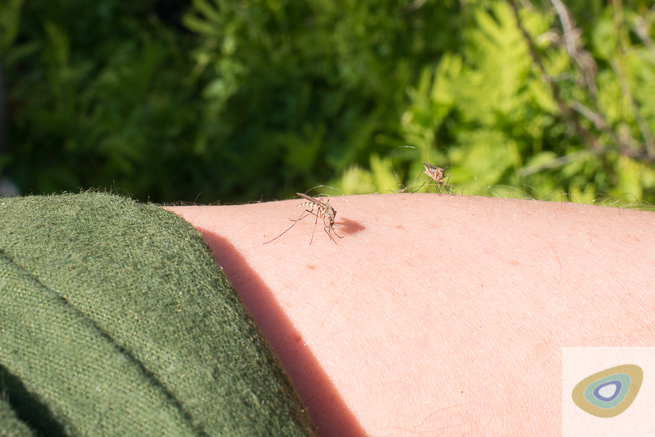
Hexapods And Myriapods and Arachnids! Oh My!
We consider many insects to be pests; those that are parasitic, transmit disease or damage crops.
But we also celebrate their contribution to ecosystems, including our own. Without them, life as we know it could not exist. So, annoying as they can be, we need them.
We are fortunate here in the UK as many of our bugs are mostly innocuous. There is nothing out there that is aggressive or poses a risk of immediate death. But there are aspects that you must be aware of. If you are spending any time outdoors in the summer months then you must make yourself familiar with the symptoms of, and remedies for, adverse reactions to bites and stings.
Lyme disease is well documented and comes from an infected tick. Most tick bites will be managed by safe removal of the tick and cleaning the wound.
The most serious adverse reaction to bites and stings is anaphylaxis which should always be treated as an emergency. Other than that, an antihistamine application and/or localised cleaning and dressing should suffice. You can include the necessary items for removing ticks, cleaning and treating bites, including antihistamine tablets such as Piriton in your personal first aid kit.
Prevention it seems, is the best approach then, if we are spending days and nights outdoors.
The Frontier team spend weeks sleeping in the woods and have become expert at fending off unwanted bugs. We asked them for any tips on dealing with creepy-crawlies.
UK and Abroad; Paul Kirtley:
I don’t worry too much in the UK and rarely wear any form of repellent here. The exception is in Scotland during midge season, where I find the best protection is a fine mosquito head net over a peaked cap or bush hat, which is worth its weight in gold when trying to cook in a midgy area. I try to camp in spots that are breezy enough to keep the midges away if I can.
The other concern in the UK is ticks. It’s not a huge concern for me personally as they don’t seem to go for me. Even so, when in areas with significant deer populations and close undergrowth, I make sure I wear long trousers, with elastic at the bottom at least or tuck socks in. I check for ticks daily before going to bed.
In terms of repellents, Mosiguard is good for the UK and relatively benign environments. I typically use Nordic Summer in the northern temperate and boreal zones and due to the small size of the tin, typically always have a tin with me as part of my basic kit.
Elsewhere, particularly in the tropics, I use DEET. There are various concentrations available as a spray but high concentration DEET can damage equipment and clothing. As an alternative, 3M’s Ultrathon lotion is a good place to start with 34% deet Head-nets or bug-suits, however, make a more significant difference to comfort levels when biting insects are a more significant problem and are preferable to using repellents on their own.
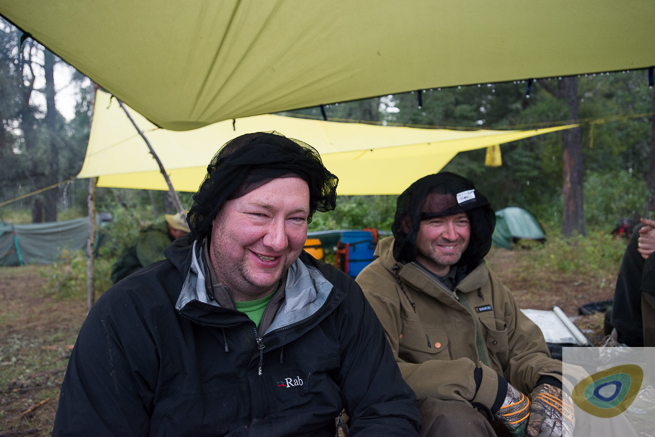
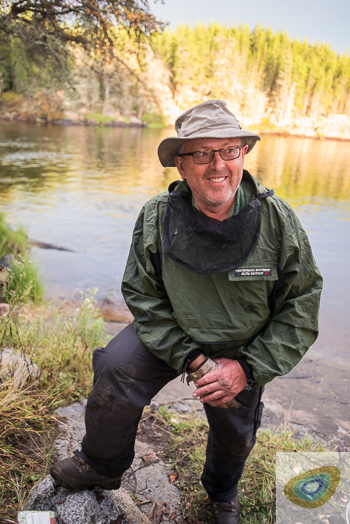
Further afield, particularly in areas where biting insects carry transmittable diseases, it’s not only important to have been vaccinated and be taking the appropriate prophylaxis, it is important to minimise the number of bites. You can find out what immunisations and prophylaxis you need, as well as other health considerations, for different countries here.
I always carry a mosquito net in Canada and for Summer canoe trips, I take a bug shirt with a netted face veil built into the hood.
Again, choice of campsite makes a huge difference. Finding somewhere breezy to camp significantly reduces the number of mosquitoes or blackfly. Even outside the worst of the mosquito season, a sheltered camp on the edge of the river with muskeg or swamp nearby will be a lot less pleasant than a breezy bluff or island. In general, mosquitoes and midges tend to come out in biggest numbers at dawn and dusk, so avoiding being out of your tent or bug net at these times also makes a difference.
In the African bush, I wear long trousers and short canvas gaiters to cover the gap between safari boots and trousers. A shirt thick enough to stop tsetse flies biting through the fabric is also wise. Always sleep inside a mosquito net, even indoors. In the bush, a raised bed inside a mosquito net or a tent with a zipped door help keep you separate from ground-dwelling nasties. For similar reasons, a hammock and mosquito net come into their own in tropical forests.
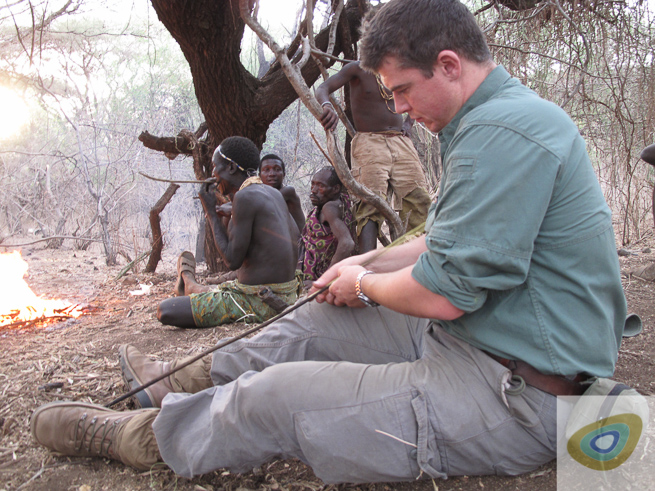
With biting flies, clothing colour makes a significant difference. Generally, it’s best to avoid wearing dark colours. Light colours attract biting insects less. Tsetse flies are particularly attracted to blue (indeed tsetse fly traps are made of blue material). I have a friend who even swears by wearing white dress shirts in the Canadian backwoods during mosquito season.
Finally, a pair of leather gloves can be handy around camp anyway but in areas where mosquitoes are bad, they also prevent those annoying, incredibly itchy back-of-hand bites.

A Slug Horror; Henry Landon :
The summer of 2012 was very wet, and the winter before this was mild. This, in combination with a decline in some bird species lead to what we call “slug fest”. l don’t have a problem with creepy crawlies, but this was just difficult to deal with. Sleeping on the floor was a hazard, I woke up one night with a slug crawling into my mouth, which is the most unpleasant experience I’ve had in the woods. James Bath, Paul Kirtley and I got bitten on the face by leopard slugs which are a predatory species, although I’m not sure that we are their usual prey.
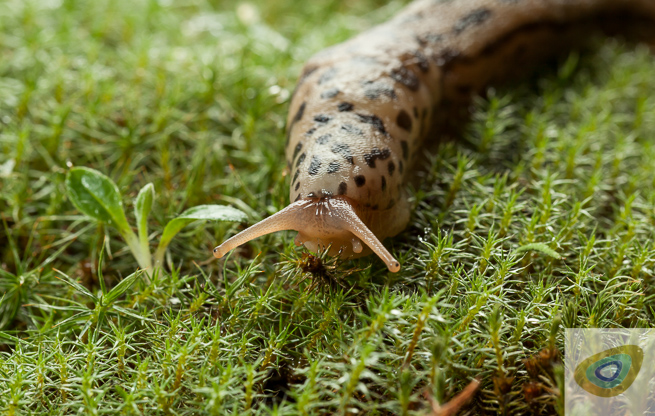
I generally try not to kill anything unless I really must, but this slug epidemic lead to all-out war! In the evening, we would go on slug patrol just before bed, walking round our tarps and picking up and throwing or squashing any slugs we could find. One night it got so bad that I poured salt around where my head was when I slept. We also tried raking back the leaf litter to bare ground. None of these tricks worked. If you squashed the slugs more slugs would come to eat the dead ones, if you cleared the leaf litter back it attracted more slugs to the damp ground you had exposed, and the salt just ended up dissolving into the ground.
In the end, I resorted to sleeping in a hammock, and this is the advice I would give. If you’re not a fan of bugs or they creep you out, then sleep in a hammock with a bug net. I have done it in the jungle and it is pretty much common practice in tropical countries, so why not do it in the U.K.?
After that wet summer of 2012 I have not had a problem with bugs outdoors when sleeping since, that season was a one off, so don’t let it put you off sleeping out in the woods.
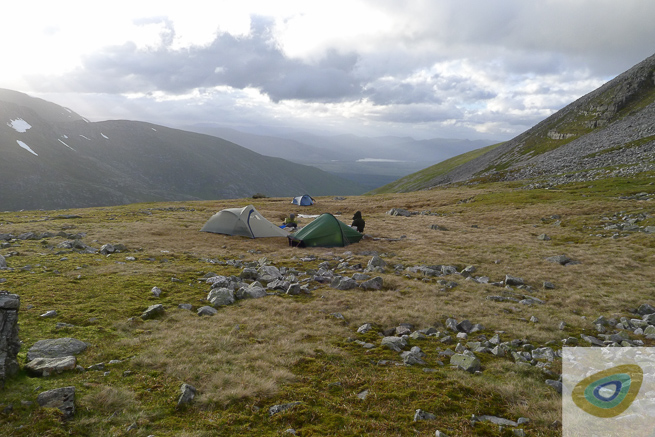
Bath Oil; James Bath:
I don’t really mind or suffer too badly from midges – it seems they just go for some people more than others. If the midges are outrageous then the only thing that kind of works is Avon Skin So Soft – I learned this from Ghillies and Stalkers up in Scotland. I find it horrible to use and it just kind of sticks the bugs to you but seems the best. I’ve tried all the scents, candles, and other sprays – seemingly to no avail.
With ticks, I always have a good check everywhere last thing at night when I’m having a bit of a wash before bed. I’ve had numerous ticks on myself and taken them from others. They always seem to go for the more intimate/embarrassing places so I’ve seen it can take quite a lot for someone to ask for help with ticks if they don’t really know you – or even if they do. Just ask – it’s better a little embarrassed than potentially a horrible disease.
If I am somewhere with more aggressive things then I am anal about checking boots in the morning, bedding or sleeping bags, clothes, and I am careful I’m not putting my hand where I can’t see – like in bags, dark places etc.
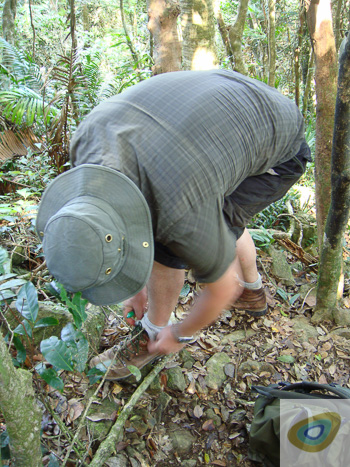
Home-made Remedy; Alison Delaney:
I made a balm from bog myrtle, pine resin and beeswax that I use as an insect repellent. I keep it in a small tin container and use it to heal small nicks and grazes as well as keep the bitey things at bay. I would also recommend wearing a woollen hat rolled down over your ears when sleeping at night. One of the few times I neglected to do that, I had a wood ant crawl into my ear canal. Not a pleasant experience!
Spoon Treatment; Paul ‘Spoons’ Nicholls:
I find the best way to stop an itching bite is to apply a hot (hot as you can bear it) back of a spoon firmly to the wound. Trust me, it works! I also take an antihistamine tablet which helps alleviate any itching. Don’t scratch! When you set up your camp, check the ground and anything overhead just to make sure there are no nests that you are disturbing. Routinely check your boots, bags and bed for any unwanted guests. I also sleep with earplugs in, not necessarily for bugs, more for snoring!
So, armed with knowledge and understanding and a few well-chosen ‘just in case’ medical applications, there is no need to dread the bug season. How do you manage bites or stings? Do you check regularly for ticks? Let us know in the comments!
Latest posts by Team Frontier (see all)
- How The Team Deal With Creepy Crawlies When Camping - July 4, 2017
- Staying Hydrated – Tips From The Team - June 13, 2017
- It’s Not The End Of The World – Keeping Up Morale Outdoors - April 25, 2017

Lee
Hi, quick question if I may…
Next week we are off camping in the kent woods. It’s the first time for the missus in a hammock but she has no bug net and is a bit nervous. Any tips to allay her fears?
Thanks an advance 🙂
Steve Bayley
Sorry about the snoring Spoons! I use Nordic Summer too, but next time it fails I’m going to try your hot-spoon trick. Unless this is just delayed revenge for the snoring…
James
That was a very good read. Thankyou very much! I’ll be sure to use some of these tips myself when I’m next out in the Bush.
Sam
As for keeping ticks and other crawling things off the person, closed gap between trousers and boots can be greatly enhanced by soaking down the top of the boots/bottom of the trousers with bug spray. In the tropical jungle, after a couple of weeks I, and everyone in my squad came to swear by little pen shaped bottle of a Lidocain (so) solution. It was just a dab-on with a single drop and that bite was soothed and disinfected. I have not seen the brand I had in ’86, but I have seen basically the same product rebranded.
Jenny
Not usually a problem for me when camping in the winter, but i wish I’d have seen this guide in the summer months! I was almost put of cycling this year after suffering with so many insect bites!
Paul
Hi Paul!
Great article and quite humorous the thought of you hunting leopard slugs by headlight (sorry).
You concluded to use a hammock with a bug net if things get that bad, but as you have mentioned in an askPaulKirtly episode that you sleep best on the ground may I suggest taking a look at a superlight DD mesh tent!
I have no affiliation with the company but have found it works well for me.
The simple a-frame mesh tent can be pegged out and strung up under your tarp (no poles)
Plus it weighs slightly less than a hammock!
Paul Kirtley
Hi Paul, thanks for the tip. I really appreciate you taking the time to let me know this, connecting several comments I have made about sleeping. Very kind of you.
Warm regards,
Paul